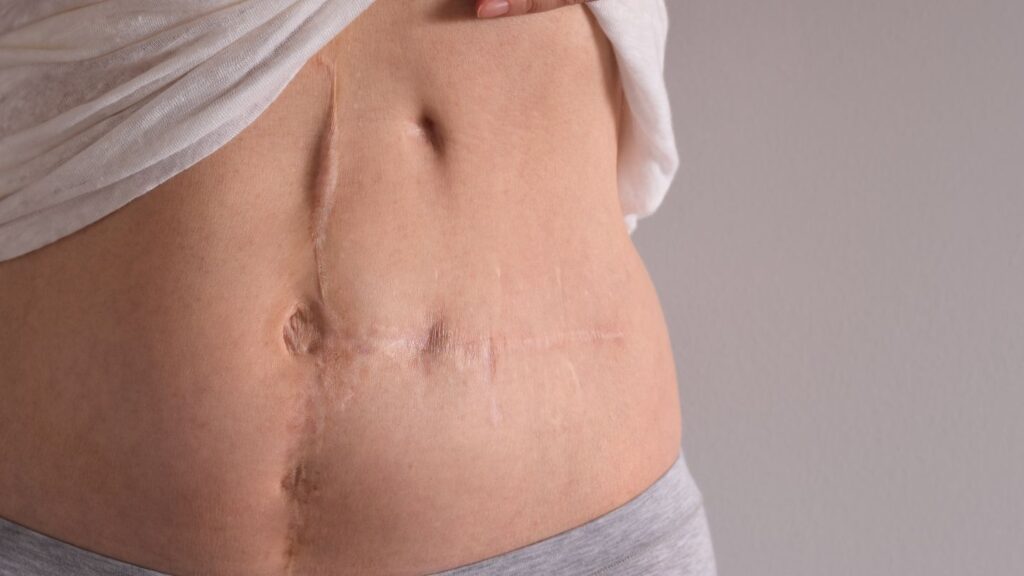The gallbladder is a small but important organ that plays a role in digesting fats by storing bile produced by the liver. While gallbladder issues can affect anyone, women are more likely to face problems. This article explores why women are more prone to gallbladder issues and when surgery might be necessary.
Are Women More Likely to Have Gallbladder Problems?
There are several reasons why women seem to face gallbladder issues more than men. These include hormonal factors, pregnancy, and diet.
Hormonal Factors
One of the main reasons women are more prone to gallbladder problems is hormones, particularly oestrogen and progesterone. These hormones can influence the way bile is produced and how the gallbladder works. Oestrogen tends to increase cholesterol in the bile, while progesterone relaxes the gallbladder muscles, making it harder for bile to flow out effectively. As a result, this combination can lead to the formation of gallstones, which are solid particles that develop in the gallbladder and can cause pain or blockages.
Pregnancy
Pregnancy can also increase the risk of gallbladder problems in women. During pregnancy, hormone levels fluctuate, and the growing uterus can put pressure on the gallbladder. This can affect the way bile flows and lead to the development of gallstones. Pregnant women may also experience slower digestion, further increasing the likelihood of gallbladder issues. In fact, women who have had multiple pregnancies are at a higher risk.
Diet
Diet can play a role in the development of gallstones, and it’s often said that a high-fat, low-fibre diet can increase the risk of gallbladder problems. Women are more likely to experience weight fluctuations, which can also affect their gallbladder health. Rapid weight loss, for example, can cause the liver to release excess cholesterol into the bile, leading to the formation of stones. A poor diet that lacks nutrients can exacerbate these issues.
When Is Gallbladder Removal the Right Option?
In many cases, gallstones can be managed without the need for surgery. However, there are situations where removing the gallbladder becomes necessary.
Severe Pain or Discomfort
The most common reason for gallbladder removal is when the person experiences severe pain, often referred to as a “gallbladder attack.” This pain is typically sharp and occurs in the upper right abdomen, and it can be triggered after eating fatty or greasy foods. If the pain is frequent and disrupts daily life, surgery may be recommended.
Gallstone Blockages
If gallstones block the bile ducts, they can cause more serious complications like jaundice or pancreatitis. In such cases, gallbladder removal surgery, known as a cholecystectomy, is often required to prevent further damage.
Infections or Inflammation
When the gallbladder becomes inflamed, a condition known as cholecystitis, or infected, it can lead to severe symptoms such as fever, nausea, and vomiting. If other treatments do not work, gallbladder removal may be the most effective solution.
What to Expect from Gallbladder Removal Surgery
Gallbladder removal is typically done through minimally invasive surgery, known as laparoscopic cholecystectomy. This means smaller incisions, less pain, and a quicker recovery time. The procedure usually takes around an hour, and most people can go home the same day. After surgery, most people can return to normal activities in about a week or so, though some may need a bit longer to fully recover.
How LS Lee Surgery Can Help
If you’re experiencing ongoing gallbladder issues or suspect that you might need surgery, it’s important to consult with a professional to discuss your options. Dr Lee Lip Seng, Senior Consultant Surgeon in Hepato-Pancreato-Biliary Surgery, specialises in laparoscopic and robotic surgery, providing a precise and less invasive approach to gallbladder removal. At LS Lee Surgery, patients are treated with the utmost care, ensuring a smooth journey from diagnosis to recovery.
If you’re ready to take the next step or have concerns about your gallbladder health, reach out to LS Lee Surgery for a consultation. Dr Lee and his team are here to guide you through the process and help you find the right treatment tailored to your needs.







